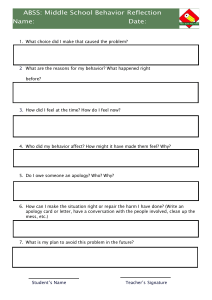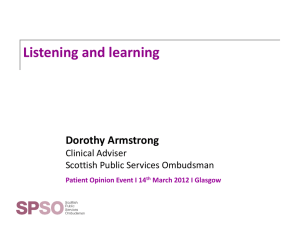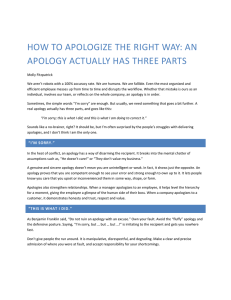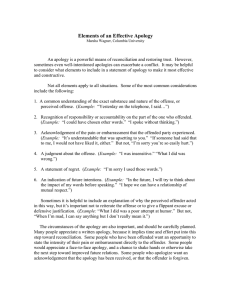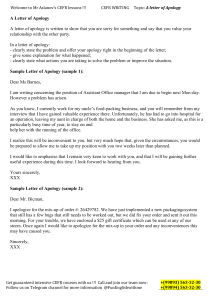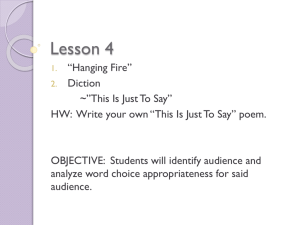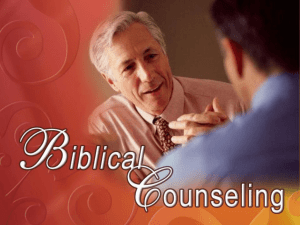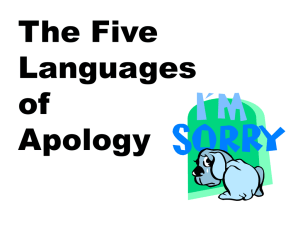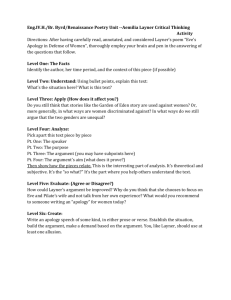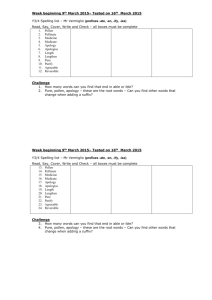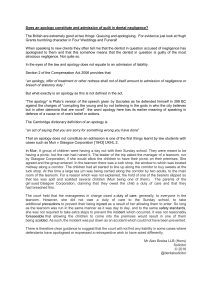Dorothy Armstrong Transcript
advertisement
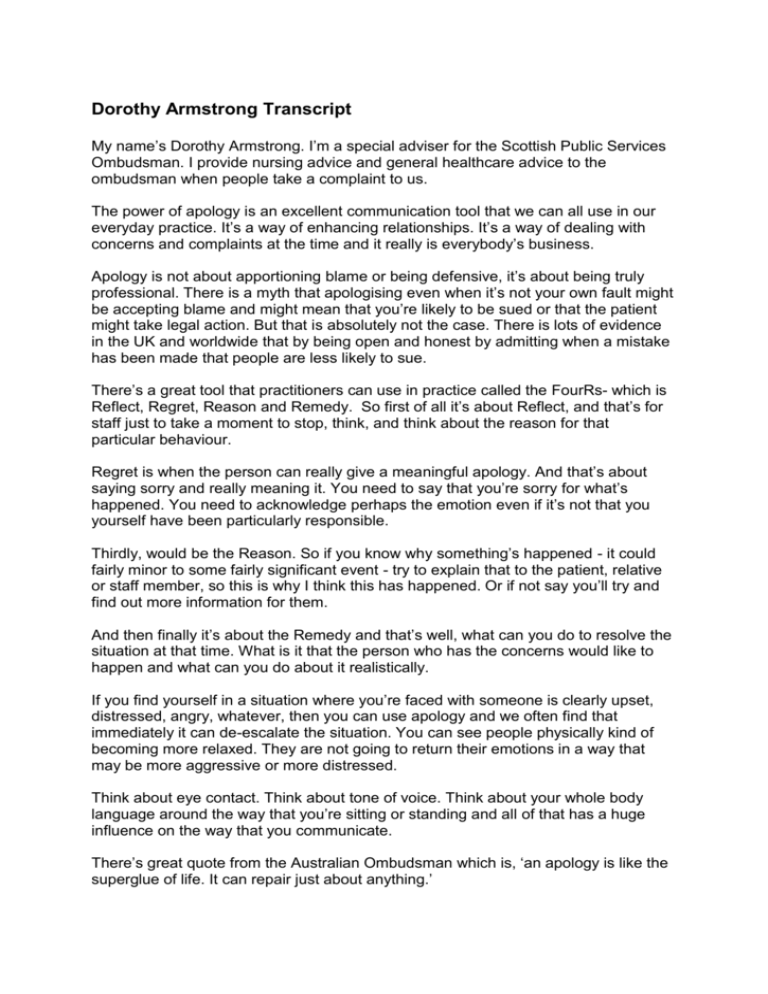
Dorothy Armstrong Transcript My name’s Dorothy Armstrong. I’m a special adviser for the Scottish Public Services Ombudsman. I provide nursing advice and general healthcare advice to the ombudsman when people take a complaint to us. The power of apology is an excellent communication tool that we can all use in our everyday practice. It’s a way of enhancing relationships. It’s a way of dealing with concerns and complaints at the time and it really is everybody’s business. Apology is not about apportioning blame or being defensive, it’s about being truly professional. There is a myth that apologising even when it’s not your own fault might be accepting blame and might mean that you’re likely to be sued or that the patient might take legal action. But that is absolutely not the case. There is lots of evidence in the UK and worldwide that by being open and honest by admitting when a mistake has been made that people are less likely to sue. There’s a great tool that practitioners can use in practice called the FourRs- which is Reflect, Regret, Reason and Remedy. So first of all it’s about Reflect, and that’s for staff just to take a moment to stop, think, and think about the reason for that particular behaviour. Regret is when the person can really give a meaningful apology. And that’s about saying sorry and really meaning it. You need to say that you’re sorry for what’s happened. You need to acknowledge perhaps the emotion even if it’s not that you yourself have been particularly responsible. Thirdly, would be the Reason. So if you know why something’s happened - it could fairly minor to some fairly significant event - try to explain that to the patient, relative or staff member, so this is why I think this has happened. Or if not say you’ll try and find out more information for them. And then finally it’s about the Remedy and that’s well, what can you do to resolve the situation at that time. What is it that the person who has the concerns would like to happen and what can you do about it realistically. If you find yourself in a situation where you’re faced with someone is clearly upset, distressed, angry, whatever, then you can use apology and we often find that immediately it can de-escalate the situation. You can see people physically kind of becoming more relaxed. They are not going to return their emotions in a way that may be more aggressive or more distressed. Think about eye contact. Think about tone of voice. Think about your whole body language around the way that you’re sitting or standing and all of that has a huge influence on the way that you communicate. There’s great quote from the Australian Ombudsman which is, ‘an apology is like the superglue of life. It can repair just about anything.’
